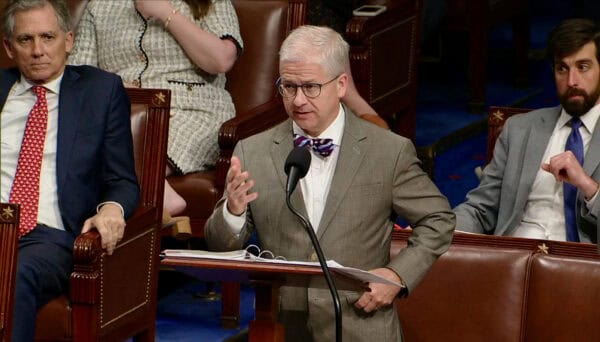
After an impassioned debate by multiple Democrats criticizing the legislation, the Financial Innovation and Technology for the 21st Century Act (FIT21), HR 4763, has been approved by the US House of Representatives. The final vote showed solid support as 208 Republicans were joined by 71 Democrats to approve the bill. Those voting against it included just 3 Republicans and 133 Democrats, with 15 Representatives not voting.
Representative Maxine Waters, ranking Minority on the House Financial Services Committee, led the charge in demanding the legislation be rejected, echoing much of what SEC Chairman Gary Gensler posted today. Representative Patrick McHenry, Chairman of the House Financial Services Committee, countered the criticism with many representatives expressing their opinions as to why the bill must be passed.

Republicans touted the current dysfunctional regulatory environment, which leaves consumers at risk. Additionally, Republican members advocated the need for the US to lead the development of digital assets, noting that some firms have already decamped to other global jurisdictions where digital asset regulation has been finalized or is in process.
The Democrats focused their energy on past acts of fraud and other nefarious activity, along with crypto being utilized to skirt sanctions and current AML/KYC rules.
The arguments shared by Republicans were convincing as they garnered the support of sympathetic Dems who want to protect consumers and keep innovation in the US.
McHenry issued the following statement after the vote:
“Today, the House took a historic step by passing FIT21 with broad, bipartisan support. FIT21 provides the regulatory clarity and robust consumer protections necessary for the digital asset ecosystem to thrive in the United States. The bill also ensures America leads the financial system of the future and remains a hub for technological innovation. I appreciate the partnership of Chairman Thompson, as well as Congressmen French Hill and Dusty Johnson. This landmark initiative would not be possible without their steadfast leadership. The overwhelming support for FIT21 in the House should serve as a wake-up call to the Senate and this Administration. They must come to the table to ensure the Americans who engage with digital assets can do so safely.”
Chairman of the House Committees on Agriculture, Glenn “GT” Thompson, called the legislation a milestone, establishing a much-needed regulatory framework.
“This framework is designed to protect consumers and investors while fostering American leadership in the digital asset space. I extend my thanks to Chairman McHenry for his leadership and that of our subcommittee chairs, Rep. Johnson and Rep. Hill, in moving this legislation.”
Representative Hill said the bipartisan support of the bill showed consumer protection and US innovation are priorities.
“Today’s victory gets us one step closer to establishing clear rules of the road for developers in the industry so America can remain a global hub for tech and finance innovation. I hope the Senate considers this bill soon so we can finalize this essential framework,” said Representative Johnson.
Several amendments were added just prior to the final vote, so the exact language of the legislation is forthcoming. The bill clarifies which financial regulator has oversight over different digital assets while addressing other issues highlighted by industry participants. It also creates a new digital asset exemption for issuers in need of capital.
The legislation now migrates to the Senate, where it may have a tougher go. The Senate Banking Committee, under the leadership of Chairman Sherrod Brown, has not been very supportive of digital assets and Fintech in general. As it is an election year, and Senator Brown is facing a tough challenger in Ohio, perhaps he will reconsider his recalcitrance in approving a digital asset regulatory framework.
